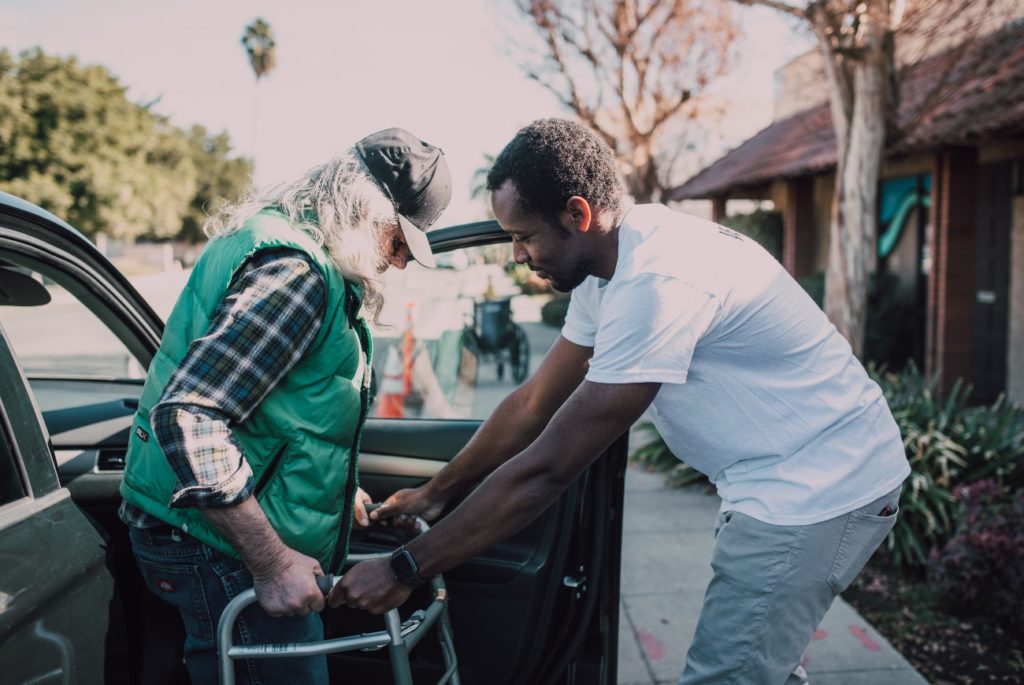Updated on 10/13/23
Content reviewed by Christian Losch, LCSW, LCADC
Substance use disorder (SUD) is a complex mental health condition that occurs from chronic and/or repeated substance use. Luckily, it is treatable, but it requires intimate and compassionate care for recovery to occur. Still, the chemical mechanisms involved with SUD in the brain also make it a disease prone to relapses. To prevent relapse to the best of one’s ability, one must know several effective relapse prevention strategies to employ throughout treatment and recovery.
Social support is a crucial element of recovery, as it is known to not only support treatment entry but also foster treatment engagement. When people consider social support, they often think of peer support from others who are going through the process of recovery. While receiving support is essential, not many people consider the value that providing support can also have on one’s recovery process.
Serving others can be beneficial for maintaining recovery and boosting mental health for a number of reasons, some of which include the following:
#1. Serving others reduces mental health distress, including feelings of loneliness and isolation in addiction recovery.
Substance use is often an isolating experience. Unfortunately, recovery from substance use can also feel lonely, due to the stigma associated with mental health disorders and addiction alike. Feelings of isolation and loneliness tend to perpetuate repeated substance use and can be a contributing factor to relapse during recovery.
While support groups can help individuals feel less physically alone, participants must willingly engage with others at meetings to achieve the benefit of feeling less alone. Serving opportunities, on the other hand, offer hands-on experiences for connection that can foster an individual’s willingness to engage.
Helping others through volunteer opportunities, such as packing food at local food banks or serving the homeless at a soup kitchen, can be a powerful tool in one’s recovery as it offers the chance for intimate encounters with others who might be relying on one’s service to make it through the day.
Serving reduces feelings of isolation because it offers new perspectives and insight into one’s life. The sense of purpose that individuals often experience as a result of helping others can facilitate greater commitment and motivation to achieve long-term recovery.
#2. Serving others fosters humility, which is necessary for effective treatment and lasting addiction recovery.
Another important reason why serving others is valuable for recovery is because it emphasizes the importance of humility. Humility is the capacity to view oneself positively, though without arrogance or pride. It is having balanced self-esteem that allows one to come to terms with the mistakes of their past, yet also affirms their willingness to change and be better in the future.
In recovery, humility is essential because it allows individuals to realize their personal need for help and support. Humility is the driving force that encourages one to admit to their loss of control over substance use. Without humility, little progress could be made toward achieving or maintaining sobriety throughout treatment and recovery.
Serving others fosters humility by providing the opportunity to realize one’s strengths and ability to be of assistance. For example, say there is a community event promoting a program where local seniors can be adopted by younger people to increase their sense of community and belonging. As a volunteer, one could use the opportunity to humble themselves and really understand the needs of the person they are serving.
While senior populations need compassion, they also have decades of life experience they would likely be willing to share with their young new friend. This opportunity helps the senior experience connection and helps the individual in recovery discover their ability to care for others, which can help them realize their capacity to care for themselves well.
#3. Serving others cultivates gratitude and encourages a positive mindset.
Gratitude is another essential contributor to success on the path of recovery from SUD. When people are actively struggling with substance use, their condition can perpetuate inherently negative and intrusive thoughts. Gratitude can facilitate a healthier and more positive mindset as an alternative to these negative thoughts when they involve themselves in assisting others.
If an individual in recovery is truly committed to sobriety, they know that they must be proactive because they realize that sitting alone at home for extended periods can be dangerous. To fill the gaps in their schedule, they may consider lending a helping hand to someone in their community.
Actively serving people in the community can challenge negative and intrusive thought patterns and replace them with positive ones. This is because acts of service emphasize awareness of the present moment. It can increase an individual’s vulnerability because they recognize the impact that doing so has on the community as a whole. It can make an individual more grateful for the experiences that they share with others and, above all, make an individual more appreciative of the process of recovery.
Pinelands Recovery Center of Medford is a premier drug and alcohol treatment center that understands the value of serving others in one’s recovery journey. We can connect you with volunteer opportunities throughout your treatment and recovery to help make your healing journey feel proactive and worthwhile. We offer a number of social support groups and experiences that can also reduce your feelings of isolation throughout recovery. To learn more about our treatment center and treatment options, give us a call today at (877) 557-5372.
